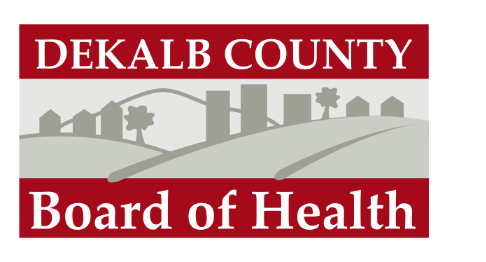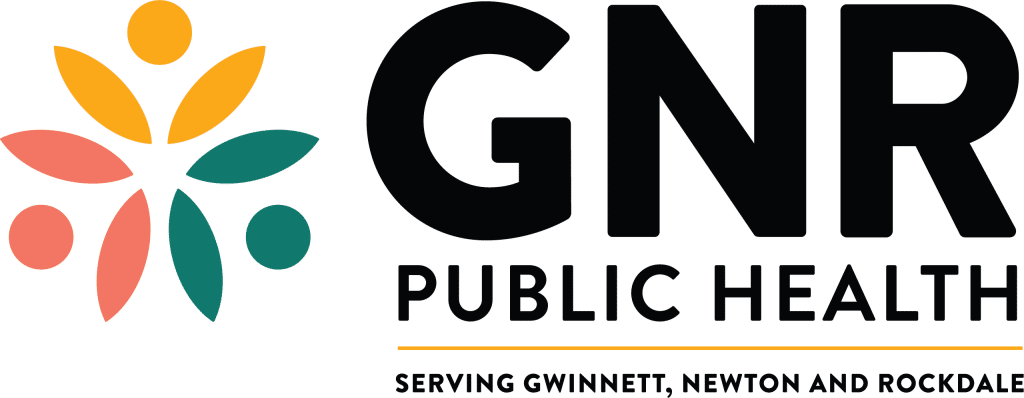
HIV Testing
Need more help?
Email us at
[email protected]
We are here to help.
Find Testing Sites Near You
Frequently Asked Questions
Below, find everything you need to know about HIV testing. Can’t find what you’re looking for? Contact a member of our team.
If you or your partner tests HIV-positive, there are plenty of resources available to you around Fulton County and the greater Atlanta metropolitan community. First, you should get into treatment with an HIV specialty clinic or trained HIV medical professional. There are medical options available that can keep you and those you love or have sex with healthy. Do not worry about having insurance or about your coverage. You can receive high-quality medical care regardless of your income level or insurance status. Contact the Fulton County Board of Health to learn more about how to best manage your recent diagnosis.
If you test negative for HIV, talk to your health care provider or contact the Fulton County Board of Health at (404) 613-3654 about protection medicines to lower your risk of contracting the virus. Pre-exposure Prophylaxis (PrEP) is a prevention method that involves taking prescription medication once a day to help reduce the risk of transmitting HIV through sex. PrEP is recommended for people with high risk of becoming HIV-positive. This prescription medication should be taken daily to stop HIV from taking hold and spreading throughout the body. This daily pill is highly effective if taken consistently. The risk of contracting HIV becomes even lower f you continue to use other prevention methods, such as using condoms when having sex. PrEP does not protect against other STDs.
Everyone should know their HIV status. Therefore, everyone should get tested at least once a year. If you are sexually active with more than one person or do not like to use condoms, you should test more than once a year. Gay, bi, and other men who have sex with men may want to consider testing 2 – 4 times a year. Transgender folks and people who use drugs such as crystal meth, cocaine, and heroin also may want to be tested more frequently.
If you are still unsure how often you should get tested for HIV, talk to a health care professional or stop by the Fulton County Board of Health Sexual Health Clinic to discuss testing options.
There are multiple HIV testing centers in Fulton County, DeKalb County, Gwinnett County, and Cobb County where HIV testing is free, fast, easy, and confidential. Locate the closest HIV testing center near you with the tool above our FAQ, or stop by the Fulton County Board of Health Sexual Health Clinic (10 Park Pl South, 5th FL) for a quick, free, and easy HIV test today!
Yes. Different types of rapid tests can provide results in as little as a minute to 20 minutes. Various testing agencies use different types of tests. Most require a painless finger stick to draw a little bit of blood. None of these exams test for the virus that causes HIV, but rather for the presence of HIV antibodies produced in reaction to an infection. These antibody tests can usually give a reliable diagnosis within 30 days of becoming infected.
You should talk to a health care professional to help determine which type of HIV test is the best option for you. Each test works best in a different time window after possible exposure to HIV.
A new type of HIV test can diagnose HIV within two weeks of infection. This test is called a 4th Generation test. It can detect the presence of HIV itself. The 4th generation test requires a blood draw and special equipment in a lab, so it may not be available at all sites where an HIV antibody test is available.
How an HIV test works depends on the kind of test you choose. Some HIV tests draw blood from the inner arm or a finger stick to determine if the virus is in your body. Talk to your health care provider or a professional at the Fulton County Board of Health to determine the best type of HIV test for you.
Unfortunately, testing today would be too soon. Depending on the type of HIV test you get, they can detect the virus anywhere from 2 – 4 weeks after contraction. Until that time, you are in “the window period,” meaning you may be positive, but the test will not be able to detect it. It is crucial to be aware of the window period of an HIV test to determine your accurate HIV status.
If you think you have been exposed to HIV in the last 72 hours, talk to a health care provider or contact the Fulton County Board of Health about taking a preventive medication called post-exposure prophylaxis (PEP) as soon as possible to reduce your risk of getting HIV. PEP medication must be started within three days after you think you have been exposed to HIV for maximum effectiveness. You will continue taking the medication for the next 28 days.
The time it takes to get HIV test results back varies depending on the type of test you decide to take. Some HIV tests can give results in as little as a minute, while other rapid tests can take up to 20 minutes to provide a result. A lab-based 4th generation test may take a few days. Call 404-613-3654 to talk to a professional at the Fulton County Board of Health or contact another health care provider in the Atlanta metropolitan community about the best HIV test you should take.
The cost of an HIV test varies depending on where you go. Free or low-cost HIV testing is available at most testing centers in Fulton, Cobb, DeKalb, and Gwinnett Counties and the greater Atlanta metropolitan area. It’s free and easy to get tested for HIV at the Fulton County Board of Health.
Why Get Tested?
Getting tested for HIV is the first step you should take to do your part in stopping the HIV crisis. Free HIV testing is easy, fast, and available all across Metro Atlanta.
There is no way to know if you have HIV without a test. Fortunately, there are many places in Metro Atlanta that offer free HIV testing, resources, and support. HIV testing is safe, affordable, fast, easy and confidential. Get tested for HIV, so you will know how to take care of your health.
Testing FAQ
If you or your partner tests HIV-positive, there are plenty of resources available to you around Fulton County and the greater Atlanta metropolitan community. First, you should get into treatment with an HIV specialty clinic or trained HIV medical professional. There are medical options available that can keep you and those you love or have sex with healthy. Do not worry about having insurance or about your coverage. You can receive high-quality medical care regardless of your income level or insurance status. Contact the Fulton County Board of Health to learn more about how to best manage your recent diagnosis.
If you test negative for HIV, talk to your health care provider or contact the Fulton County Board of Health at (404) 613-3654 about protection medicines to lower your risk of contracting the virus. Pre-exposure Prophylaxis (PrEP) is a prevention method that involves taking prescription medication once a day to help reduce the risk of transmitting HIV through sex. PrEP is recommended for people with high risk of becoming HIV-positive. This prescription medication should be taken daily to stop HIV from taking hold and spreading throughout the body. This daily pill is highly effective if taken consistently. The risk of contracting HIV becomes even lower f you continue to use other prevention methods, such as using condoms when having sex. PrEP does not protect against other STDs.
Everyone should know their HIV status. Therefore, everyone should get tested at least once a year. If you are sexually active with more than one person or do not like to use condoms, you should test more than once a year. Gay, bi, and other men who have sex with men may want to consider testing 2 – 4 times a year. Transgender folks and people who use drugs such as crystal meth, cocaine, and heroin also may want to be tested more frequently.
If you are still unsure how often you should get tested for HIV, talk to a health care professional or stop by the Fulton County Board of Health Sexual Health Clinic to discuss testing options.
There are multiple HIV testing centers in Fulton County, DeKalb County, Gwinnett County, and Cobb County where HIV testing is free, fast, easy, and confidential. Locate the closest HIV testing center near you with the tool above our FAQ, or stop by the Fulton County Board of Health Sexual Health Clinic (10 Park Pl South, 5th FL) for a quick, free, and easy HIV test today!
Yes. Different types of rapid tests can provide results in as little as a minute to 20 minutes. Various testing agencies use different types of tests. Most require a painless finger stick to draw a little bit of blood. None of these exams test for the virus that causes HIV, but rather for the presence of HIV antibodies produced in reaction to an infection. These antibody tests can usually give a reliable diagnosis within 30 days of becoming infected.
You should talk to a health care professional to help determine which type of HIV test is the best option for you. Each test works best in a different time window after possible exposure to HIV.
A new type of HIV test can diagnose HIV within two weeks of infection. This test is called a 4th Generation test. It can detect the presence of HIV itself. The 4th generation test requires a blood draw and special equipment in a lab, so it may not be available at all sites where an HIV antibody test is available.
How an HIV test works depends on the kind of test you choose. Some HIV tests draw blood from the inner arm or a finger stick to determine if the virus is in your body. Talk to your health care provider or a professional at the Fulton County Board of Health to determine the best type of HIV test for you.
Unfortunately, testing today would be too soon. Depending on the type of HIV test you get, they can detect the virus anywhere from 2 – 4 weeks after contraction. Until that time, you are in “the window period,” meaning you may be positive, but the test will not be able to detect it. It is crucial to be aware of the window period of an HIV test to determine your accurate HIV status.
If you think you have been exposed to HIV in the last 72 hours, talk to a health care provider or contact the Fulton County Board of Health about taking a preventive medication called post-exposure prophylaxis (PEP) as soon as possible to reduce your risk of getting HIV. PEP medication must be started within three days after you think you have been exposed to HIV for maximum effectiveness. You will continue taking the medication for the next 28 days.
The time it takes to get HIV test results back varies depending on the type of test you decide to take. Some HIV tests can give results in as little as a minute, while other rapid tests can take up to 20 minutes to provide a result. A lab-based 4th generation test may take a few days. Call 404-613-3654 to talk to a professional at the Fulton County Board of Health or contact another health care provider in the Atlanta metropolitan community about the best HIV test you should take.
The cost of an HIV test varies depending on where you go. Free or low-cost HIV testing is available at most testing centers in Fulton, Cobb, DeKalb, and Gwinnett Counties and the greater Atlanta metropolitan area. It’s free and easy to get tested for HIV at the Fulton County Board of Health.




